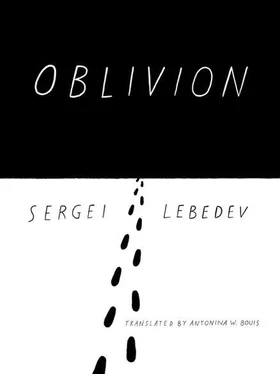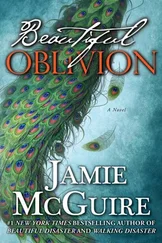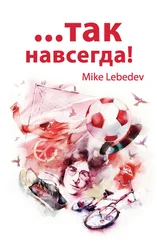The car flew and it seemed that we lived on our land like occupiers; that we looked at one another through a prison door peephole; there was music, the singer rasped that all his friends were bulls, fists ready to fight, gun ready to blaze, there was no salvation from the bulls; when the driver switched stations I could see that he had tattoos on his fingers—amateur, pale, perhaps somebody had tried to remove them—and the music, jerky and undisciplined, and the words were strangely suited to the locale. We were racing through a prison camp zone, even though these were not prison factories; the zone was everywhere, its mark was on everything—three rows of barbed wire. It seemed that every object here had to be locked away from thieves, and the locks multiplied, locks, bolts, hasps, the next set of locks, in case the first ones are defeated, and so on; oncoming cars did not turn off their high beams, blinding me, but the driver did not turn away, he was used to it; the gun ready to blaze, no salvation from the bulls, the speakers roared, and we flew, senselessly fast, as if in a hurry to fight with someone, break bones, knock out teeth; the dark, the fences, the empty lots—everything chased after us, everything showed that you could not stop here, in a plague-ridden place, and that gave a sense of daring, a ruthless readiness to live at odds with everything, to chomp onto life like it was a tough piece of meat, with sinews and fur; I had frequently been in such places, but this was the first time I realized that the criminals had won, the camp had beaten the not-camp; the camp was not gone, it had smeared itself into the landscape, cut itself into parts, and each part settled in, changing everything around it, in the milieu of human habitation.
The toys I found in Grandfather II’s apartment suited this area very well—faceless figures, rifle, German shepherd, horse; they came from here. A bridge flashed by, the fences were left behind, and the town’s narrow streets wound around hills, signs, store windows, kiosks, bus stops, railroad tracks crossed the road several times, beyond the hills factories appeared then disappeared, and the mountains came closer, squashing the town into a hollow, with only one exit, across the bridge we had taken.
To the right appeared another abyss of darkness; but I could make out a big building. The driver explained that this was a train station, that previously commuter trains used to run here, but the branch was abandoned during perestroika and only freight lines were left; the station was unsupervised and there had been a fire. The road twisted up a slope, and the car flew right up to the station; the building was typical, with arches, columns, and very wide windows—a railroad temple from the forties or fifties, an altar of schedules. The fire had merely blackened the walls, and the station had the desecrated majesty of an abandoned church, as if the locals rejected a religion; I could not tell from his tone whether the driver was sorry or on the contrary was proud of the arson, his speech betrayed both.
I came back to the station in the daytime; I had a similar experience only once, in Istanbul by the Golden Gate; I saw what happened to a former crossroads of history, saw how the once-ruined is ruined a second time; at the fortress walls of the former Constantinople, vendors sold cell phone covers, broken kettles, bolts, nuts; here’s a defroster (the plastic yellowed by time or smoke), here’s a bent microscope, here’s a package of syringes. The users of the syringes had moved inside the walls, campfires sent up smoke, ragged bums, who gave off a vibe of cowardice and violence, wandered amid the collapsed battlements.
Depression hits you by the Golden Gate; a new horde, the nomads of the new world, traders in fake leather jackets huddle in the ruins, unable to take them apart completely and build something different; they have grown accustomed to disarray, to accepting crevices in the old walls as living space; to the fact that you can live without looking back at the past and assuming that the shade of ancient walls is convenient shade on a hot day and nothing more.
At the station I saw the same kind of abandoned crossroads, a silt-filled mouth of fate; the city cut off its own path to the outside, destroyed the window to the big world, and now lived like a blinded Cyclops deprived of its train headlight eye. But the station was burned, and the city was forced by the landscape, by the hollow in which it was situated, to shut down on itself; the place exerted a kind of terror against its populace, and people responded in kind: the walls of houses and garages were thickly covered in graffiti, curses addressed to no one in particular but directly at the environment; the scrawls were written over rectangles of fresh paint—the swear words were painted over—abundantly, fluently, and monotonously; evidence of petty revenge—knocked over garbage cans, broken streetlamps and windows, rubbish tossed on the side of the roads—showed that the residents were fighting a partisan war with the town.
Dropping me at the hotel, the driver left, and I started looking at the ads on the lamppost covered in white drips of glue; most were about apartment sales and exchanges, there were many, and they were glued on in layers, the lamppost was covered with a clustered fringe, and it seemed as if no one was comfortable living here, everyone wanted to change something, move, find a new view from the window even if it’s still within the same city limits.
In towns like this above the polar circle, the hotel is called either “North” or “Arktika”—this one was Arktika. These hotels have a special kind of discomfort; most guests are there on business, there are no insouciant vacationers.
Here dreams are laconic, like a still life of a pitcher and two glasses, but you still have to bring dreams, like food for the train, from home. In your room, you find yourself on the unfurnished margin of life. There are too few objects—tray, electric kettle, ashtray—the distance is too great between them, like in the desert, it takes a half day to get from one to the other, and they are all not quite real. In a room like that you can lay out your things, toss a book on the nightstand and cigarettes on the table, but it still feels as if you’ve stopped in some uninhabited area. All around, as in nature, only monotonous surfaces; out there—hills and valleys, here—horizontals and right angles; it’s a kind of new wilderness, a new wildness; the best reading here is a geometry textbook.
The hotel windows opened on a blank wall of the building next door; it was about ten meters to the wall, and there were no curtains—why bother, when the brickwork was so close?
Forced to live with a view of the wall, I read it like a book, the book of the wall. It’s good to look at a town from the point of view of buildings; from the point of view of bricks; then you are not an observer, you are one with the spirits of the place. But this wall did not allow me to mentally move into it, it repelled my gaze; the brick was not laid evenly, the lines were crooked, and the wall wavered; all you could learn was how gradually it was laid and how the people worked on the construction.
It seemed to me that the intention to build was missing from their actions; each brick was laid not even automatically but with a thought that was as far from construction as possible—a thought about home or about the evening’s pay packet. As a result, you could not say about the wall or the whole house that they were actually built; you could not say that the house was solid on the ground. The wall before me blocked my view but at the same time was not convincing; it seemed that it could collapse at any moment because they had not put in that something that holds a house together along with brick and mortar.
Читать дальше












